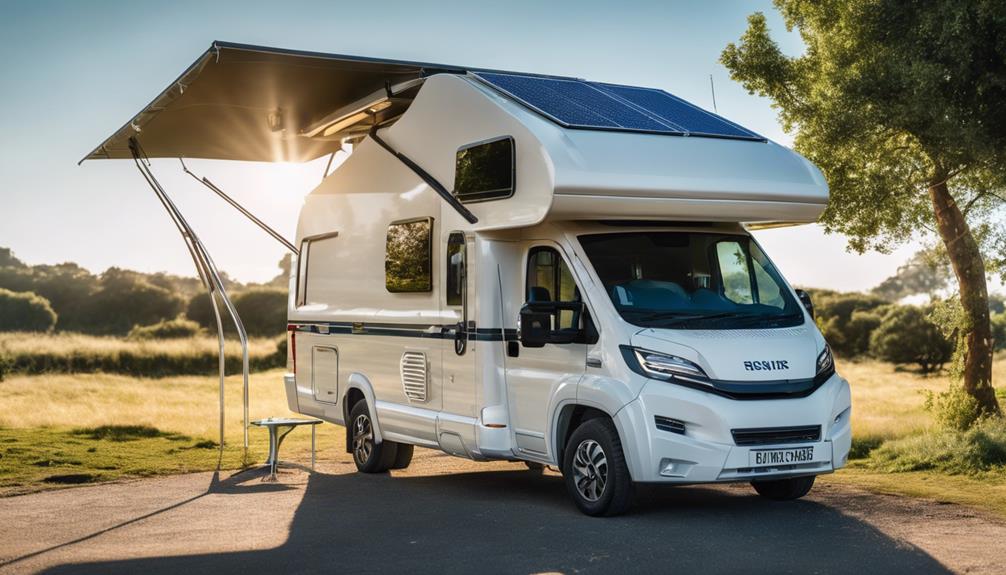
The allure of the open road and the freedom of traveling in an RV is a dream for many adventurers. However, the challenge of power management can often dampen that spirit. Enter solar panels for RVs—a key solution that allows you to harness the sun’s energy, ensuring you have power wherever your journey takes you. This comprehensive guide will explore everything you need to know about solar panels for RVs, from their benefits to installation tips and maintenance.
Understanding Solar Panels for RVs
Solar panels for RVs are an innovative technology designed to convert sunlight into electricity. They provide a sustainable energy source that is particularly beneficial for RV enthusiasts who like to camp off-grid or in remote locations. By installing solar panels on your RV, you can power appliances, lights, and other electronic devices without relying on traditional energy sources or noisy generators. This makes your RV experience more enjoyable and eco-friendly.
The Benefits of Using Solar Panels in Your RV
Choosing solar panels for RVs comes with numerous advantages. First and foremost, they offer energy independence. With solar power, you are not tethered to campsites with electrical hookups, allowing you to explore more remote locations. Additionally, solar energy reduces your carbon footprint, making it an environmentally friendly option. Furthermore, the long-term savings on fuel and generator costs make solar panels a wise investment. Once installed, the maintenance is minimal, and the panels can last for decades, providing you with free energy for years to come.
Types of Solar Panels for RVs
When selecting solar panels for RVs, you will encounter various types. The most common types include monocrystalline, polycrystalline, and thin-film solar panels. Monocrystalline panels are known for their high efficiency and space-saving design, making them ideal for smaller RV roofs. Polycrystalline panels, while slightly less efficient, are more affordable and suitable for larger installations. Thin-film solar panels are lightweight and flexible, although they generally have lower efficiency and require more space. Understanding these differences will help you choose the right type of solar panel for your specific needs.
How to Choose the Right Solar Panel System for Your RV
Selecting the right solar panel system for your RV involves evaluating your energy needs and the available space on your roof. Start by calculating how much power you’ll need based on the appliances and devices you plan to use. This will help you determine the wattage of the solar panels required. Additionally, consider the size of your RV’s roof; you want to maximize the surface area without overcrowding. Finally, look for a solar kit that includes not just the panels, but also the necessary components like charge controllers, batteries, and inverters for a complete solar setup.
Installation of Solar Panels on Your RV
Installing solar panels for RVs can be a DIY project or a job for professionals, depending on your skill level. If you choose to install the panels yourself, ensure you have the right tools and follow the manufacturer’s instructions closely. Begin by securing the solar panels to the roof with mounting brackets, ensuring they are positioned to receive maximum sunlight exposure. Next, connect the panels to the charge controller and battery system to store the energy generated. If you’re not comfortable with electrical installations, consider hiring a professional to ensure everything is set up correctly and safely.
Maintenance Tips for Your RV Solar System
To ensure the longevity and efficiency of your solar panels for RVs, regular maintenance is essential. Start by cleaning the panels periodically to remove dirt, debris, and bird droppings that can obstruct sunlight. Inspect the connections and cables for wear and tear, and replace any damaged components. Additionally, monitor your battery levels and charging system to ensure they are functioning properly. By taking these simple steps, you can extend the life of your solar system and maximize its performance.
Cost Considerations for RV Solar Panels
The initial investment in solar panels for RVs can vary widely based on the type and size of the system you choose. On average, a complete solar kit can range from $1,000 to $3,000, including the panels, batteries, and installation costs. While this may seem high upfront, consider the long-term savings on fuel and generator costs, as well as the added comfort and convenience of having reliable power on the road. Additionally, various financing options and incentives may be available, making the transition to solar energy more affordable.
Conclusion: Embrace the Freedom of Solar Power in Your RV
In conclusion, solar panels for RVs offer an excellent solution for those looking to enjoy the great outdoors without sacrificing modern conveniences. By harnessing the sun’s energy, you can explore remote locations, reduce your environmental impact, and enjoy significant savings over time. Whether you’re a seasoned RV traveler or new to the lifestyle, investing in solar power can enhance your adventures and provide you with the freedom to roam wherever the road may lead. Embrace the future of RV travel with solar energy and experience the true meaning of off-grid living.





